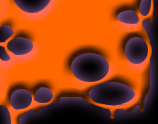|
The Holocaust the planned deportation and killing of people by Nazi Germany.
Six million Jews were killed, and many other millions that the Nazis said were undesirable. Many were rounded up, put in ghettos forced
to work in concentration camps and then killed in massive gas chambers.
The persecution and genocide were accomplished in stages. Legislation
to remove the Jews from civil society was enacted years before the outbreak of World War II. Concentration
camps were established in which inmates were used as slave labour
until they died of exhaustion or disease. Where the Third Reich conquered
new territory in eastern Europe, specialized units called Einsatzgruppen murdered
Jews and political opponents in mass shootings. Jews were crammed into ghettos before being transported hundreds of miles by freight train to extermination camps where, if they survived the journey, the majority of them were killed in gas chambers. Every
arm of Germany's bureaucracy was involved in the logistics of the mass murder, turning the country into what one Holocaust
scholar has called "a genocidal state.
|
|
Elie Wiesel was born in Sighet, (now Sighetu Marmatiei) Maramures,
Kingdom of Romania, to Shlomo and Sars Wiesel. It was Shlomo who instilled a strong sense of humanism in his son, encouraging
him to learn Modern Hebrew and to read literature, whereas his mother encouraged him to study Torah and Kabbalah. Wiesel
has said his father represented reason, and his mother, faith.
The town of Sighet was re-annexed to Hungary. In 1944 Elie, his family
and the rest of the town were placed in one of the two ghettos in Sighet. Elie and his family lived in the larger of the two,
on Serpent Street. On May 16, 1944, the Hungarian authorities deported the Jewish community in Sighet to Auschwitz-Birkenau.
While at Auschwitz, the number A-7713 was tattooed into his left arm. Wiesel was separated from his mother and sister Tzipora,
who are presumed to have been murdered at Auschwitz.
Wiesel and his father were sent to the attached work camp Buna-Werke,
a subcamp of Auschwitz III Monowitz. He managed to remain with his father for a year as they were forced to work under appalling
conditions and shuffled between concentration camps in the closing days of the war. On January 29, 1945, just a few weeks
after the two were marched to Buchenwald and only months before the camp was liberated by the American Third Army on April
11, Wiesel's father suffered from dysentery, starvation, and exhaustion, and was later sent to the crematory. The last
word his father spoke was “Eliezer”, Elie's name.
|

